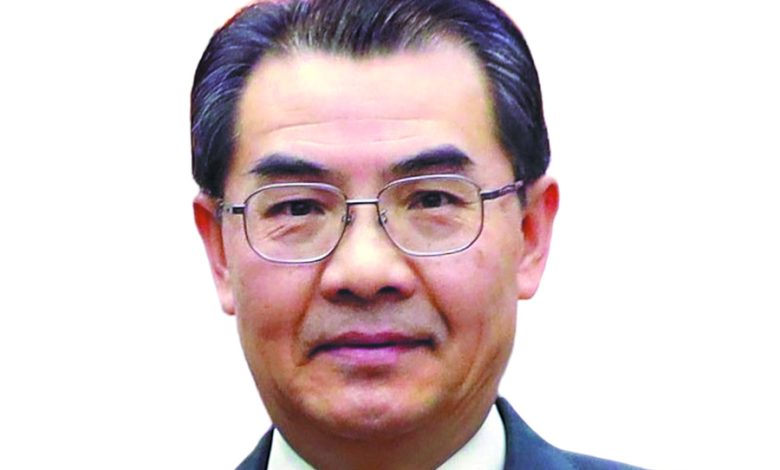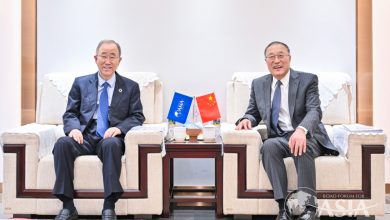China-Japan win-win cooperation ‘only right choice’

Advancing win-win cooperation and realizing the prosperity of both nations is the “only right choice” for China and Japan, and Tokyo “should maintain strategic autonomy and reject bloc confrontation”, said Chinese Ambassador to Japan Wu Jianghao.
Wu, who is also a member of the 14th National Committee of the Chinese People’s Political Consultative Conference, made the comments in a recent exclusive interview with China Daily.
When asked about major items on the bilateral agenda this year, Wu referred to the consensus reached by President Xi Jinping and Japanese Prime Minister Fumio Kishida during their meeting in San Francisco in November.
He noted that Xi and Kishida agreed on maintaining bilateral dialogue and communication at various levels, and on organizing a new round of the China-Japan High-Level Economic Dialogue and a new meeting of the China-Japan high-level consultation mechanism for people-to-people and cultural exchanges at an appropriate time.
“The two sides are carrying out discussions and coordination on the detailed arrangements,” Wu said.
“The Japanese side is expected to move toward the same goal with China, create an enabling atmosphere for this with tangible actions and advance the agenda stated above for desirable results,” he added.
Speaking of the current China-Japan bilateral relationship, Wu noted that in recent years, the ties “have been faced with a series of risks and challenges, as well as considerable disturbances by factors from the outside”.
He said the two nations should “focus on the fundamental interests of the two peoples and the region’s need for peace and stability, and earnestly implement the important consensus of their leaders”.
The meeting between Xi and Kishida reaffirmed a commitment to comprehensively promote China-Japan strategic and mutually beneficial relations, and “it charted the direction for the improvement and development of relations between the two countries”, Wu said.
Beijing and Tokyo should “enhance political mutual trust, properly handle contradictions and differences, deepen mutually beneficial cooperation, expand people-to-people and cultural exchanges, and promote the sound and stable development of bilateral ties along the right track”, he added.
As for the major areas of two-way cooperation, the ambassador noted that “the interests of China and Japan are greatly intertwined, and their production and supply chains have an inextricable connection”.
He pointed to the remarkable potential for cooperation in areas such as scientific and technological innovation, green development and medical care for the elderly.
In addition, the two countries face common issues in social governance, such as coping with an aging population and low birthrates, Wu added.
“Subscribing to the idea of win-win cooperation and boosting their respective development and prosperity is the only right choice” for the two nations, Wu said.
“To this end, it is important to put into practice the consensus on being partners and posing no threat to each other,” he added.
The two sides need to properly handle and manage existing issues in accordance with the principles set out in the four landmark China-Japan political documents, Wu said.
They also need to “address emerging issues” such as the discharge of nuclear-contaminated water from Fukushima into the sea and “do more to eliminate difficulties and impediments and inject positive impetus into the development of China-Japan relations”, he said.
Noting that the current international situation has become more volatile, Wu said: “As important countries in the region and the world, China and Japan have the duty and obligation to work together to uphold real multilateralism, promote all-benefiting and inclusive economic globalization, and inject more stability into the world.”





